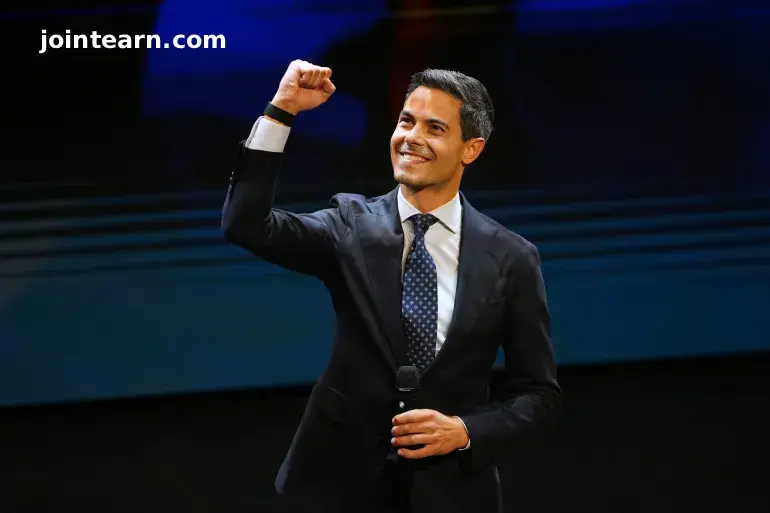
Rob Jetten’s centrist D66 party surges to victory as Geert Wilders’ Freedom Party loses ground in a landmark 2025 Dutch election.
LEIDEN, Netherlands — October 30, 2025.
The Netherlands has witnessed a major political turning point as the centre-left D66 party scored a decisive victory in the 2025 Dutch general election, nearly tripling its seats in parliament and dealing a major blow to the far-right Freedom Party (PVV) led by Geert Wilders.
With 90 percent of the votes counted early Thursday, projections showed both D66 and PVV winning 26 seats in the 150-member Dutch House of Representatives. However, the momentum—and likely mandate to form the next government—clearly shifted toward D66 and its leader Rob Jetten, whose campaign inspired a new wave of optimism among moderate and progressive voters.
A Resounding Rejection of Far-Right Politics
The result marks a stunning reversal for Wilders, who only two years ago led the PVV to its best-ever performance. Known internationally as the “Dutch Trump,” Wilders has built his political career on anti-immigration, anti-Islam, and Eurosceptic rhetoric. But this election saw the far-right leader lose significant voter support amid growing fatigue over populist polarization.
“Of course, we would have liked to win more seats,” Wilders admitted during his concession speech. “But it’s not as if we were wiped off the map.”
He confirmed that his party would continue to fight “from the opposition benches,” as virtually all major Dutch parties have ruled out entering a coalition with him.
Rob Jetten Poised to Become Netherlands’ Youngest Prime Minister
For 38-year-old Rob Jetten, the night marked a historic triumph. The D66 leader is now expected to lead coalition talks that could make him the youngest and first openly gay prime minister in Dutch history.
Celebrations erupted at D66 headquarters in Leiden, where supporters waved Dutch flags and chanted “Yes, we can!” as exit polls flashed across screens showing their party’s surge.
“We’ve shown not only to the Netherlands but also to the world that it’s possible to beat populist and extreme-right movements,” Jetten declared to roaring applause.
“Millions of Dutch people today turned a page and said farewell to the politics of hate, fear, and division.”
What D66 Campaigned On
Jetten’s D66 party built its platform around pragmatic progressivism, promising to:
- Tackle the national housing crisis, particularly for young families.
- Increase education and research funding to drive innovation.
- Balance immigration reform with humanitarian commitments.
- Accelerate the green energy transition while maintaining fiscal stability.
Political analysts credit D66’s success to Jetten’s calm, solutions-focused tone that appealed to voters weary of political chaos following the collapse of Wilders’ previous coalition government in June 2025.
Wilders’ Populism Loses Momentum
Wilders’ campaign focused heavily on his trademark anti-immigration and nationalist agenda, including controversial proposals to ban asylum seekers, cut international aid, and repatriate Ukrainian male refugees. Those positions alienated centrist and moderate conservative voters and triggered widespread backlash across Europe.
Despite leading a right-wing coalition after his 2023 victory, Wilders’ inability to maintain unity among his partners led to early elections. Analysts say this latest result signals a broader European fatigue with far-right populism, mirroring trends seen in Germany, France, and Austria in recent months.
A Long Road to Coalition Building
Under the Netherlands’ proportional representation system, 76 seats are required to form a majority government. With no single party anywhere close to that threshold, coalition negotiations are expected to be lengthy and complex—a hallmark of Dutch politics.
One likely scenario could see D66 partnering with:
- The Christian Democratic Appeal (CDA),
- The centre-right VVD, and
- The Greens-Labour alliance (GL/PvdA).
Such a coalition would blend progressive social policies with fiscal prudence and climate action, offering stability after years of political turbulence.
However, insiders warn that coalition talks could take months, given the fragmented landscape and competing priorities among potential partners.
A New Political Chapter for the Netherlands
For now, D66’s victory represents more than just a change in numbers—it symbolizes a national shift away from divisive politics and toward cooperation and moderation.
European leaders quickly congratulated Jetten, calling his victory a “blow to extremism” and a reaffirmation of liberal democratic values in Europe.
As the Netherlands turns the page, Jetten’s biggest challenge will be translating optimism into action—bridging ideological divides to deliver on promises of housing, climate, and unity.
“This is not just a win for D66,” Jetten said. “It’s a win for hope, progress, and belief in what our country can achieve together.”


Leave a Reply